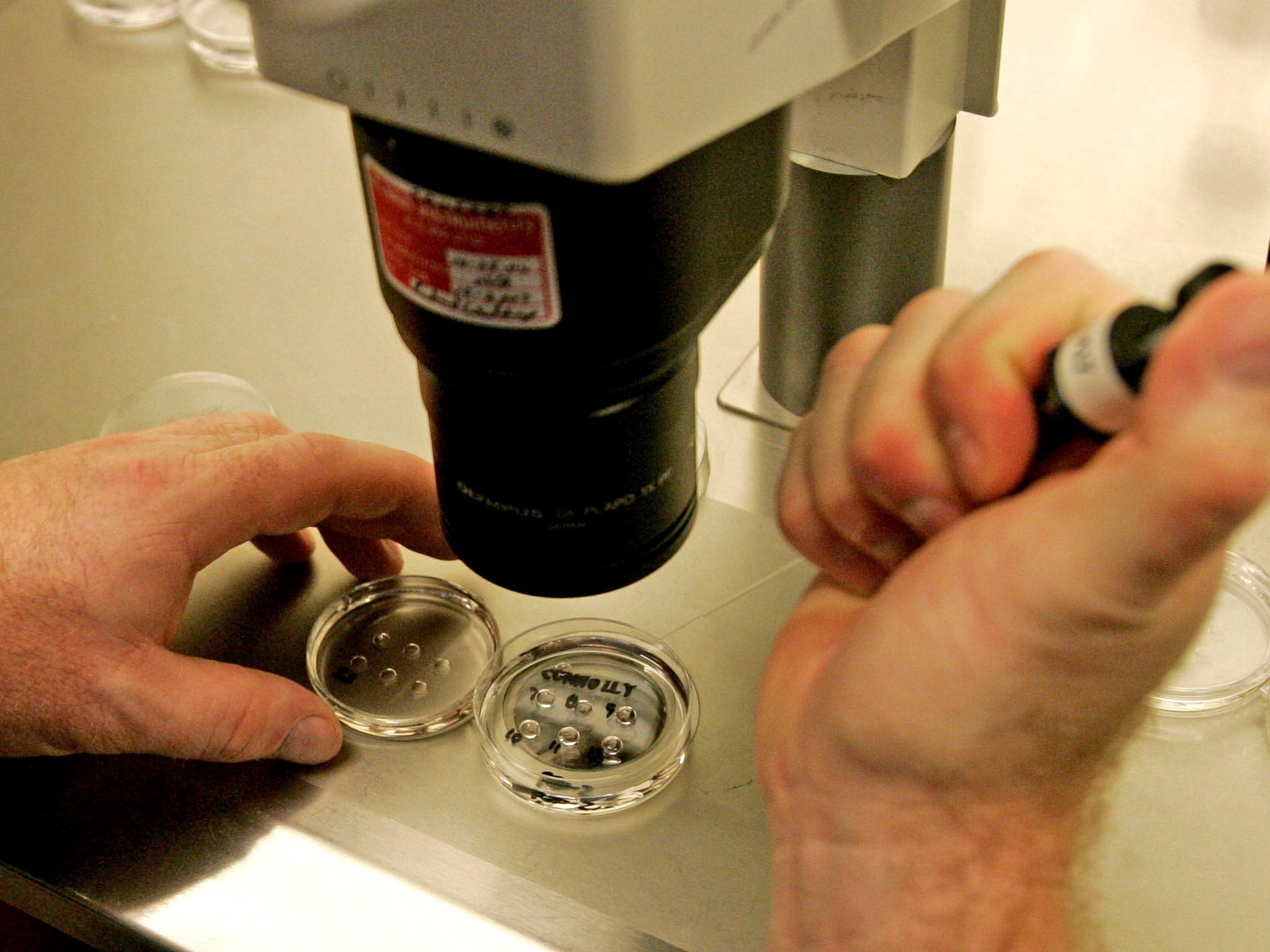Calls for IVF laws to be changed to take advantage of gene editing technique
Genetic modification of human embryos 'could eliminate some genetic diseases'

Your support helps us to tell the story
From reproductive rights to climate change to Big Tech, The Independent is on the ground when the story is developing. Whether it's investigating the financials of Elon Musk's pro-Trump PAC or producing our latest documentary, 'The A Word', which shines a light on the American women fighting for reproductive rights, we know how important it is to parse out the facts from the messaging.
At such a critical moment in US history, we need reporters on the ground. Your donation allows us to keep sending journalists to speak to both sides of the story.
The Independent is trusted by Americans across the entire political spectrum. And unlike many other quality news outlets, we choose not to lock Americans out of our reporting and analysis with paywalls. We believe quality journalism should be available to everyone, paid for by those who can afford it.
Your support makes all the difference.Britain may need to change its IVF laws to allow the genetic modification of human embryos so that scientists can use a gene-editing technique that could eliminate certain inherited diseases, leading biomedical organisations warn.
At present it is illegal to alter the genes of reproductive “germ cells” such as eggs, sperm and embryos, but the clinical benefits of modifying the human germ-line could one day outweigh the ethical objections, says a statement by two government research councils and a coalition of medical research charities.
While the US has imposed a moratorium on the use of genome editing of human embryos, the joint statement implies that the day might soon come in the UK when it is ethically justified to implant the first genetically modified embryo in a womb. The research organisations, which include the Medical Research Council and the Wellcome Trust, Britain’s biggest medical charity, said there was no reason why the gene-editing technique known as Crispr-Cas9 should not be used immediately on early IVF embryos for research purposes provided they are not implanted into the womb – which is currently allowed under existing legislation.
They added that there was the possibility that Crispr-Cas9 may eventually prove to be safe enough to use clinically on IVF embryos and human embryos and germ cells to help families suffering from inherited diseases to have healthy babies who will not suffer from or pass on the defect to future generations.
“We believe that genome editing technologies may hold significant potential for clinical application in the future; and we would be open to supporting the development of new therapeutic approaches should the evidence from research advance sufficiently to justify their use,” says the joint statement.
“These advancements have involved the editing of human somatic [non-reproductive] cells with the aim of repairing or eradicating a mutation that could cause disease or to engineer beneficial changes to allow cell therapy, for example in cancer, where an individual’s immune cells might be modified to target cancerous cells,” it says.
“We recognise that there may be future potential to apply genome editing in a clinical context using human germ cells or embryos, though this is prohibited by law in the UK and unlikely to be permissible in other European jurisdictions at present.
“This raises ethical and regulatory questions, which need to be anticipated and explored in a timely and inclusive manner as the basic research proceeds and prior to any decisions about clinical application,” it states.
In addition to the MRC and the Wellcome Trust, the statement is signed by the Academy of Medical Sciences, the Association of Medical Research Charities and the Biotechnology and Biological Sciences Research Council. The biomedical organisations want a wider debate on the use of Crispr-Cas9, which is a relatively simple and effective way of germ-line editing of the genome to eliminate the mutations and inherited defects behind the 6,000 single-gene diseases.
Join our commenting forum
Join thought-provoking conversations, follow other Independent readers and see their replies
Comments